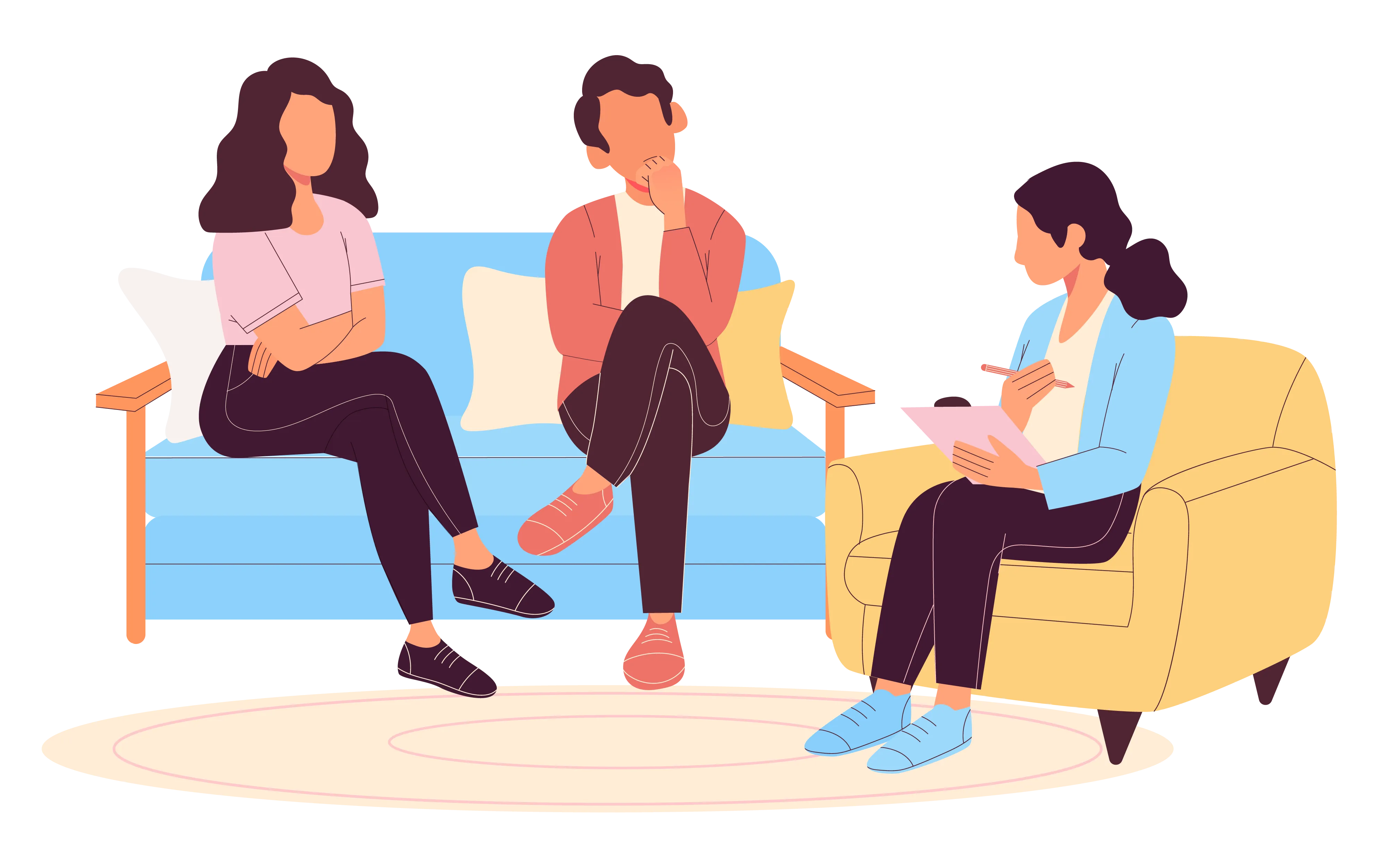Psychiatrist | 5 min read
7 Important Ways to Take Care of Family Members with Psychiatric Problems
Medically reviewed by
Table of Content
Key Takeaways
- Apathy and unusual behavior are some signs of mental problems
- Depression is a common mental illness affecting people globally
- Encourage loved ones undergoing such issues to seek professional help
It is possible that you may have noticed a change of behavior in one of your family members or loved ones and wondered what’s wrong. The truth is he or she may be suffering from mental health issues such as stress, anxiety, and depression. In fact, depression is a common mental disorder that affects 264 million people worldwide [1].
It can be extremely worrying to see your loved ones deal with mental problems. Such psychiatric problems not only affect the individual but also have an impact on friends, family, colleagues, and members of the community. To find out how you can provide mental health help for family members, read on.
Ways to help a family member with mental health issues
Be informed about mental problems
Anyone can face psychiatric problems or mental health issues. Therefore, it is important to understand the signs, symptoms, and possible treatment options. Luckily, there is an increasing awareness about mental health issues and communities are recognizing it as a health condition that needs attention. While the internet is a great source to get information on mental health, you can also read books or attend workshops to know more about mental problems.
Knowing about mental health helps you notice signs like loss of interest, low energy, reduced appetite, changes in sleeping pattern, and unusual behavior in your loved ones [2].
Additional Read: How to Take Care of Your Child’s Mental Health During the Pandemic
Encourage them to seek help
Educate your family about mental health issues and the need to address them. To provide support for mental health, family members need to first acknowledge the condition and start conversing with their loved ones. Talk and encourage your loved ones to overcome such issues. Help them in every possible way to cope with it. Take them to a psychiatrist, psychologist, support group, counselor, or therapist who can help with mental health.
Keep the conversations open
Remind and reassure your family members that psychiatric problems can be treated. Do not make them feel isolated and ignored. Ask questions, listen to what they have to say, be empathetic, and show your support. Encourage them and praise their efforts, progress, and strength. These small gestures can really do wonders and help them with speedy recovery.
Express your support and concern
Your family member or a friend may be feeling hurt. Let them known that you are there for them. Understand that recovery from mental problems takes time and varies for every individual. Invite and include them in your plans even if they resist. They may not recognize or may not be able to appreciate your efforts, but the feeling that you are always there for them will help in fast recovery.

Offer help with daily tasks
Nervousness, mood changes, apathy, and decline in functional ability can affect their home, school, or work activities. People with psychiatric problems lose interest fast and start to overthink, which can lead to a decrease in productivity. They may also find it difficult to complete their daily tasks due to lack of energy. Offering help to your loved ones with daily tasks may provide the necessary support and give them the space to recover better.
Show kindness and compassion
It can be quite disheartening and frustrating to see a change of behavior in your loved ones, which can affect your mood too. You can overcome this by being kind and helpful. Studies show that an act of kindness releases the oxytocin hormone, which helps in lifting your mood and promoting overall well-being [3]. The hormone is associated with empathy and relationship-building, which stimulates social connection and trust. The feeling of love and compassion you show towards your loved ones can help them in their fight against mental problems.

Stay connected with them
People suffering from psychiatric problems often feel isolated and disconnected. Checking on them by asking simple questions about their well-being helps a lot. Schedule regular phone calls or video chats with your family members or friends to check on their health and motivate them. You may also take help from other trustworthy friends and family members to support the person who is battling mental problems.
Additional Read: 7 Important Ways to Take Care of Your Mental HealthPsychiatric problems should not be ignored and one positive step you can take is to keep yourself informed and create awareness amongst your friends and family. If you or any of your loved ones are suffering from mental problems, seek help at the onset. Book an appointment on Bajaj Finserv Health with a doctor, therapist, or counselor online who can help with mental health and take a proactive approach towards this important aspect.
References
- https://www.who.int/news-room/fact-sheets/detail/mental-disorders
- https://www.mentalhealth.gov/basics/what-is-mental-health#early
- https://www.cedars-sinai.org/blog/science-of-kindness.html
Disclaimer
Please note that this article is solely meant for informational purposes and Bajaj Finserv Health Limited (“BFHL”) does not shoulder any responsibility of the views/advice/information expressed/given by the writer/reviewer/originator. This article should not be considered as a substitute for any medical advice, diagnosis or treatment. Always consult with your trusted physician/qualified healthcare professional to evaluate your medical condition. The above article has been reviewed by a qualified doctor and BFHL is not responsible for any damages for any information or services provided by any third party.




